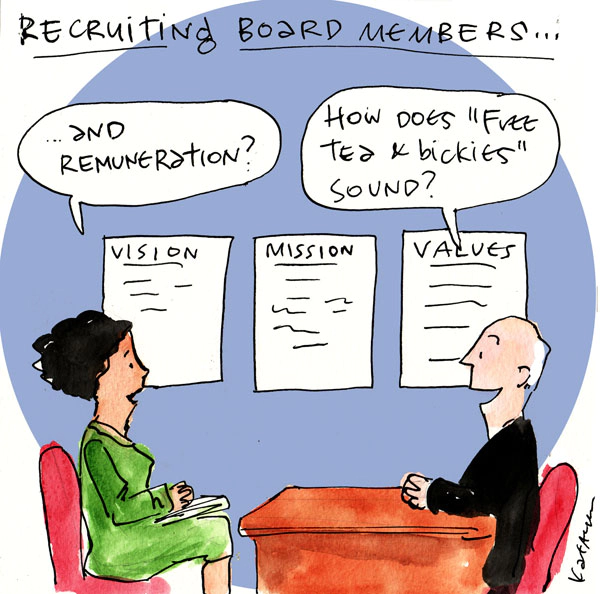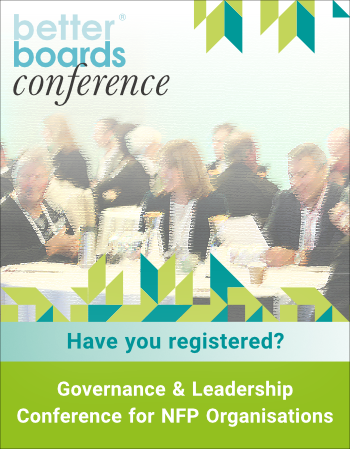legal
NFP Crisis Management – Well Whadya Know
Published: May 9, 2011
Read Time: 3 minutes

I was called in recently by a small not for profit CEO to help out with what we lawyers call some ‘crisis management’. The organization was being pursued by Fair Work Australia for some breaches of the new workplace laws.
It was apparent to me that the problem arose not because they were trying to rip off their staff but its genesis lay in a simple malaise, ignorance – the CEO simply didn’t know about the particular law that they had breached.
It got me thinking – how do NFPs (especially small ones) know about all the laws that apply to them and, what can be even more significant, about any changes to those laws?
I asked this CEO how his organization kept on top of this issue and his response was, what I call, the ‘hit and miss’ approach:
- Reading their industry newsletters
- Attending their annual conference
In reality, his subconscious risk model was the old adage, experience is a great teacher and the best way to find out about something you don’t know is to wait for something to go wrong!
He got very scared when I told him that there are over 5,000 pieces of legislation on our statute books at Federal, State and Local Government level. He then became terrified for himself and his Board of Directors when I told him that over 500 of these pieces of legislation make Executive Officers (Board members and CEOs) personally liable for the misdeeds of their organisation.
Of course, big organizations can afford to engage their own risk managers whose job it is to identify all sorts of risk that can impact on an organization including what laws need to be complied with. Trouble is, ignorance of the law is no excuse nor is the fact that you are just a little NFP doing well by doing good in your community.
Needless to say, lawyers are good at telling you what the law is and whether you are compliant or not. But I can hear the loud refrain from all you readers – we can’t afford a good lawyer, especially one who doesn’t just react to a problem you may have but can actually anticipate a potential problem.
So how do those hundreds of small and medium sized NFP’s out there confront this issue? Here are some potential solutions:
- Confess to your Board that you have no fail/safe mechanism for ensuring legal compliance
- Tell them about the statistics above
- Tell them that Insurance is not the only answer as insurance will not protect your reputation if something goes wrong
- Accept that the benefit of knowing the law far outweighs the cost of waiting to find out
- Get a good lawyer to do a legal ‘body slam’ on your organization to both identify the law that relates to you and your compliance
- Get the lawyer to set up a system of regular alerts for you to advise you on when the law changes and how
Needless to say, we already have a system in place for our NFP clients where we come in and help them identify the laws that apply to their operations to ensure compliance and, as well, alerts to keep them up to speed on changes.
In the end, this is all about legal intelligence. It is akin to that infamous statement by the former US Secretary of State, Donald Rumsfeld who once described military intelligence as being:
- Known Knowns – things we know we know
- Known Unknowns – things we know we don’t know; and
- Unknown Unknowns – things we don’t know we don’t know
In the area of legal intelligence – which camp would you rather be in?
Share this Article
Recommended Reading
Recommended Viewing
Author
-
Partner
HopgoodGanim Lawyers
- About
-
Brian is a partner with HopgoodGanim Lawyers. He is also a part time member of the Queensland Law Reform Commission and chair of the Queensland Law Society’s Elder Law Section. He spends a significant amount of his time and expertise in advising the not for profit and community sector on governance, restructuring and constitutional review, mergers and acquisitions, legal compliance and risk management. He has presented at many conferences on the changing legal dynamics and needs of the sector and what he calls their 3M’s – melding their mission, with margin and management. He says working in the area gives him the unparalleled opportunity to mix his passion for the community sector with the love of his profession.
Found this article useful or informative?
Join 5,000+ not-for-profit & for-purpose directors receiving the latest insights on governance and leadership.
Receive a free e-book on improving your board decisions when you subscribe.
Unsubscribe anytime. We care about your privacy - read our Privacy Policy .







